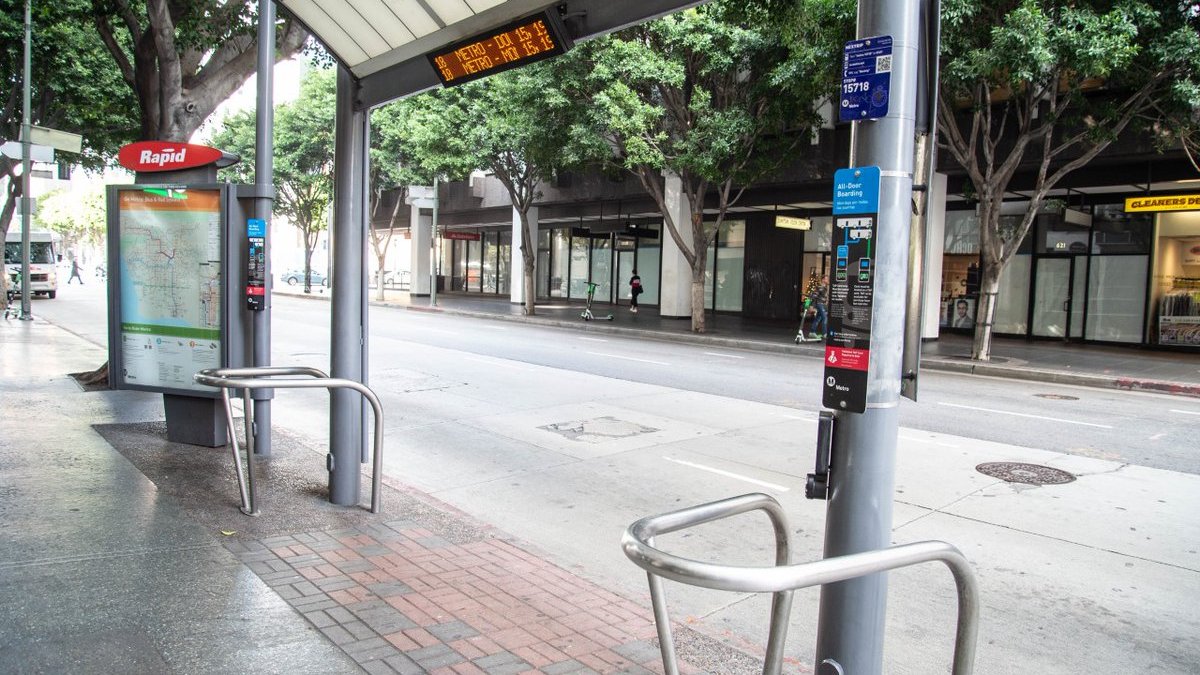Drivers in Los Angeles are getting a 60-day warning period starting Friday related to an enforcement initiative aimed at cracking down on vehicles parking on Metro bus-only lanes and zones.
Metro and the city’s Department of Transportation will implement the first phase of its joint bus lane enforcement pilot program. Cameras were installed on 50 select buses along lines 720 and 212, servicing Wilshire Boulevard and La Brea Avenue, respectively.
Following this initial period of warning and outreach, citations will be issued for bus lane violations.
“Our buses carry hundreds of thousands of people every single day,” Metro Board Chair and LA County Supervisor Janice Hahn said in a statement.
“It’s not fair that a single car blocking a bus lane can hold up a busload of people,” she added. “Those riders deserve to reach their destinations safely and on-time. This new ticketing system is important, and I hope people don’t take the risk, and move their cars out of the bus lanes.”
In early October, the L.A. City Council approved an ordinance establishing fines for drivers that park in bus-only lanes and zones. Penalties start at $293, and can increase to $381 for late payment, followed by an increase of $406 for subsequent failure to pay on time.
Both agencies will provide outreach to residents to inform them of the enforcement program. There will be payment options available for low-income individuals, once the 60-day warning period is over.
According to the Metro, vehicles that block bus lanes and stops can result in delays and disruptions for dozens of people relying on public transportation.
Cameras were installed behind buses’ windshields — one will use “computer vision” to detect vehicles on the roadway and traffic lanes, while another one will record license plates of the violating vehicle.
LADOT traffic officers will review video and verify the accuracy of the images before issuing a ticket. Evidence of a violation will be stored for six months before being destroyed, and any images unrelated to a violation will be destroyed within 15 days, according to Metro.
“Our partnership with Metro to deliver dedicated bus lanes across the city has already improved service reliability for thousands of Angelenos who rely on public transit to get where they need to go everyday,” LADOT General Manager Laura Rubio-Cornejo said in a statement. “This new program will help our officers ensure we continue to realize those benefits as we expand bus lanes to additional routes across our transportation system.”
The agencies are expected to announce phase two of the pilot at a future date, which will add cameras to select buses along lines 910 and 950 (the Silver line), and line 70, which serves Olive Street/Grand Avenue.
Cities such as San Francisco, Oakland, New York City, Washington D.C. and Philadelphia use similar technology to keep their bus lanes and stops clear.


